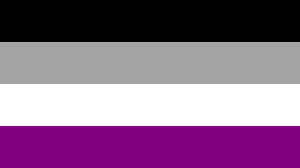At the core having an identity in Christ means Jesus defines who I am. It means at the end of the day, what God says about me is true regardless of what anyone else says, regardless of what even I say. It means whatever I think, whatever I feel, whatever I say or do is not the final word on the matter. God gets the final word. Okay, easily enough said.
But what does that look like practically? It’s hard to write about because, practically, it looks different in different people’s lives. Determining what it means to live out an identity in Christ depends on what you do, where you are, who you’re surrounded by, what you know, what you are good at, and how God is leading at that time in your life.
So rather than making some very vague (though true) statements about identity in Christ that would be applicable to everyone (for example it looks like evidence of the fruit of the Spirit in your life), I would like to write a bit about what identity in Christ is not.
Identity in Christ is NOT Christians running around shouting, “I am who God says I am!”

“I AM WHO GOD SAYS I AM!!!”
When someone asks you about yourself, chances are, you don’t start listing descriptors based on Biblical truths. Personally, I have never responded to, “Tell me about yourself” with statements like, “I am a child of the Most High King. I am dearly loved. I am redeemed in Christ. I am a sinner saved by grace.” All those things are true, and those are the most important things to know in seeking to live my life to honor God. But those are not the kinds of things we usually share when we are talking about who we are, as in our personalities. In those conversations we share our likes and our dislikes, our passions, our downfalls, our thoughts and our feelings. Where those two things collide (identity and personality) might be when we get deeper into a discussion and the conversation moves from things we do and don’t do to why. At that point in time it may be more natural, and more appropriate, to discuss pieces of our core identity and how that identity shapes our day to day lives and actions.
Identity in Christ is not becoming exactly like Jesus in every way.
Hear me out. If it were, that would mean all Christians would be slowly turning into Middle Eastern Jews. Our complexion would be changing, our facial structure would change. All Christians would also be turning into males. The Bible doesn’t tell us much about Jesus’ minor personality traits, but we would be developing those too. Suppose (just for the sake of the argument) that Jesus really liked the color orange, didn’t like the taste of figs, and loved salted fish. Guess what? All Christians would be developing those likes and dislikes too! But sanctification is not becoming the same personality as Jesus, or literally turning into the same exact person.

Historical Reconstruction of what Jesus may have looked like. We are not morphing into this.
Sanctification is actually about becoming more of who we were made to be in our uniqueness. God designed each of us to individually reflect the image of God in a unique and beautiful manner. Yet sin (both sin nature & sinful actions) in our lives bends and distorts that image. Becoming more like Christ is experiencing more and more of who God intends us to be without that sin problem. We reflect more of the character of God, while each having our own personalities.
Identity in Christ is not claiming things that are presently untrue in the hopes of them becoming true.
God gets the final word on who we are. But that doesn’t mean we ignore, cover up, or change our language to hide the reality of our experiences. In Christ I am forgiven and redeemed. Yet, it is true that I have sin in my life, both sin nature and sinful actions. It is also true that all sin will one day be removed from me (including temptations to sin). But it is not true yet. Having my identity in Christ means I can simultaneously hold what appears to be contradictory truth, that I am still a sinner and that I am entirely cleansed by Christ and free of sin. It is when I claim one without the other that problems arise. If I ignore Christ’s redemption I fall into despair in light of my sin. If I ignore my sin I go on sinning with an unrepentant heart. A mature identity in Christ trusts that God can hold both those truths side by side and seeks to hold them both myself.












